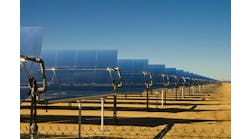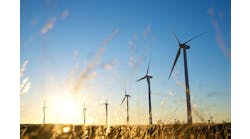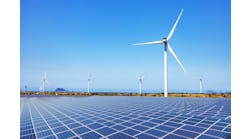No, I'm not talking about mucus and phlegm. What I am talking about is that everyone now seems to have some solution for "going green" or improving sustainability; most seem to be rolling downhill at yours truly; and so I'm up to my eyeballs and getting a little congested. Cough! For instance, walking down the aisles at some recent control and automation-related tradeshows, I thought I was in downtown Chicago on St. Patrick's Day what with all the verdant, Kelly-hued placards on longstanding devices, extolling their suddenly environmentally conscious credentials. Of course, the Internet is awash in the same colors and come-ons. This type of white washing is called "green washing."
Many folks I interview quickly explain that sustainability goes beyond simple efficiency to also embrace reducing carbon footprints and to help users implement applications that make their end-products and consumers greener and more sustainable, too. This is a wonderful goal.
We should all lessen combustion and burning of all kinds to begin saving a planetary process control system that the famous Native American proverb says "we don't inherit from our ancestors, but borrow from our children." If not, it's a good bet our grandkids may soon wish they could have broken the lease and evicted such sloppy tenants as us.
So, yes, making more efficient motors, using regenerative drives, monitoring energy consumption and other reshufflings of existing technologies can all start to make a significant dent in CO2 and other greenhouse gases. Unfortunately, it's just a start, just a dent. It's nowhere near enough, and we all know it.
We need to make far, far bigger inroads into green manufacturing and sustainable living. We must take on the main job of fighting global warming now, and it's going to require more than feel-good baby steps that avoid the real struggle. It's way past time to wake up. Using less plastic in water bottles isn't really green. Drinking perfectly good tap water is green. Driving higher mileage cars isn't really green. Taking mass transit is green.
Likewise, using more efficient motors and energy monitoring to support dirtier fossil-based fuel sources, such as oil and tar sands, fracking for natural gas, coal-to-oil and even ethanol and other biomass processes, aren't really green either. In fact, one of the repeated criticisms against scrubbing sand and shale and biomass applications is that they consume more energy and natural resources, such as fresh water, than they produce. Sustainability must mean questioning and developing better applications, not just making non-green processes more efficient.
However, at $4 per gallon and above, producing gasoline is profitable no matter how inefficient and un-green extracting and refining it happens to be. Just make sure your balance sheet doesn't include the ice sheet continuing to slide off Greenland or the Antarctic ice collapsing in the next few years. Those ecological disasters will make Japan's recent tsunami look like my post-nasal drip. Sniffle.
Truly going green means going solar, assisted by wind, geothermal and, yes, nuclear too. It will also require developing better ways to store energy from alternative sources, but still going big enough on them to meet the bulk of our energy needs, and then using efficiency methods to reduce per capita use.
This will also mean driving a lot less. Similar to butter, cheese, mayonnaise, red meat, sugar and white flour and other artery cloggers, fossil fuels and other combustibles should only be used sparingly. They can no longer be the main dish—on your plate or in your transportation and manufacturing systems.
All this is not to say that more efficient motors, regenerative drives and energy monitoring aren't terrific. However, they'll look a lot better if they fit into the overall context of helping us address what's going on in the larger background. Every little bit helps, but we need a lot more little bits. Hack! Ptooey!
Sustainability must mean questioning and developing better
applications, not just making non-green processes more efficient.






